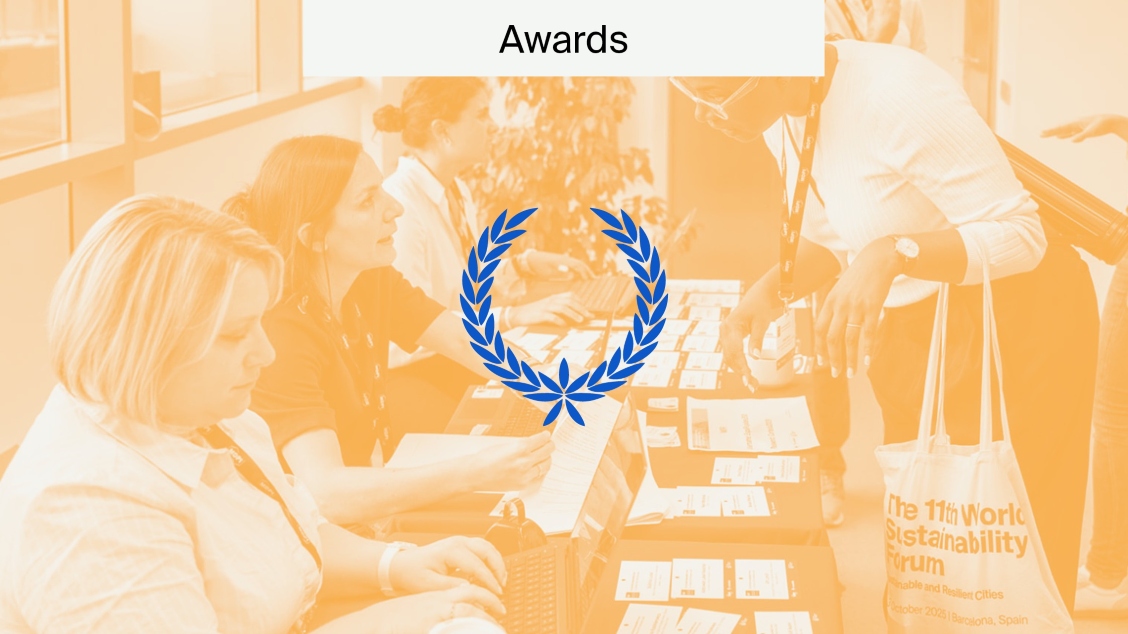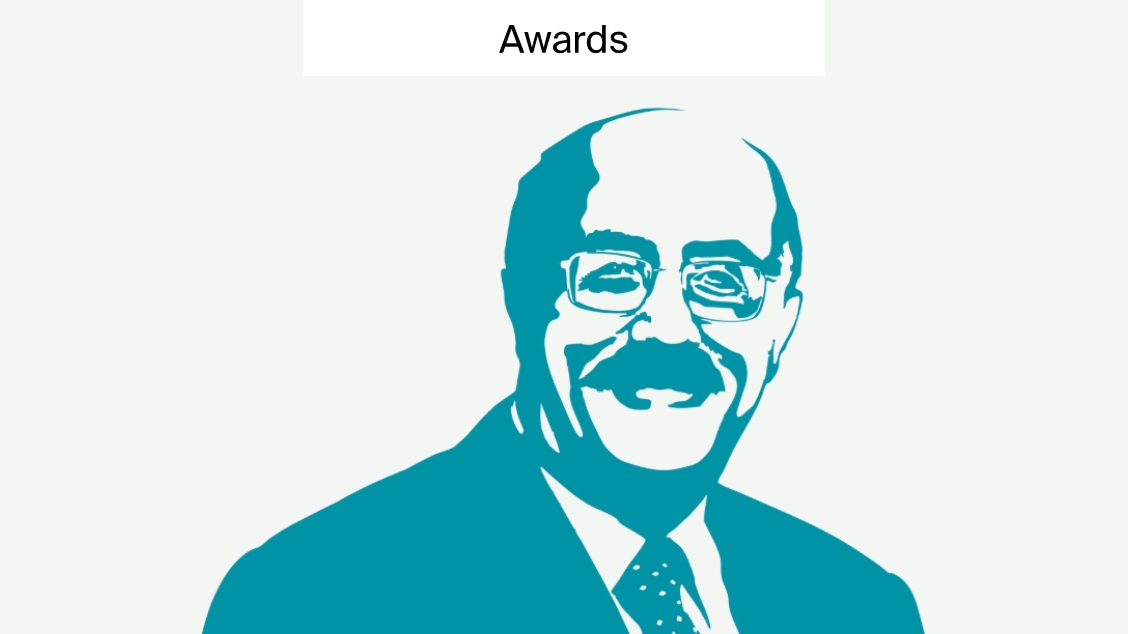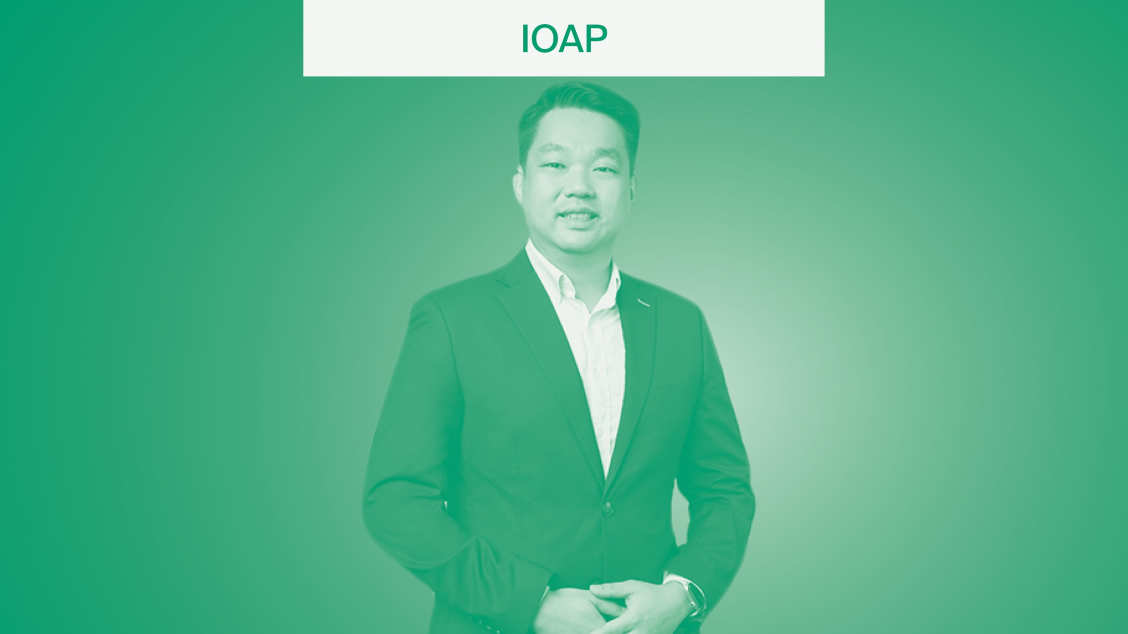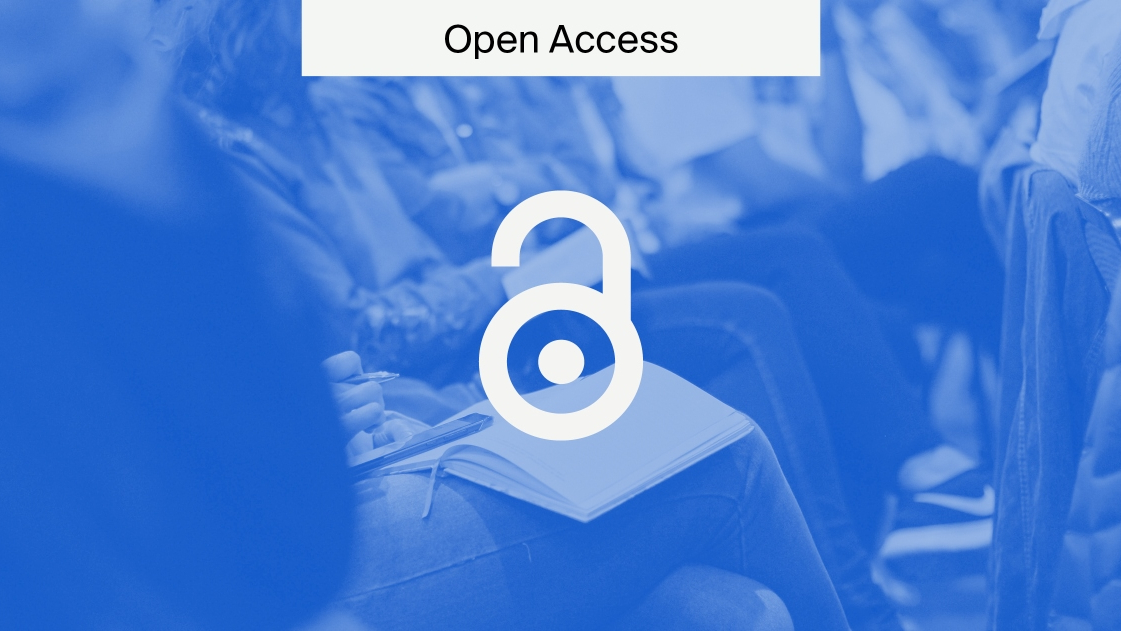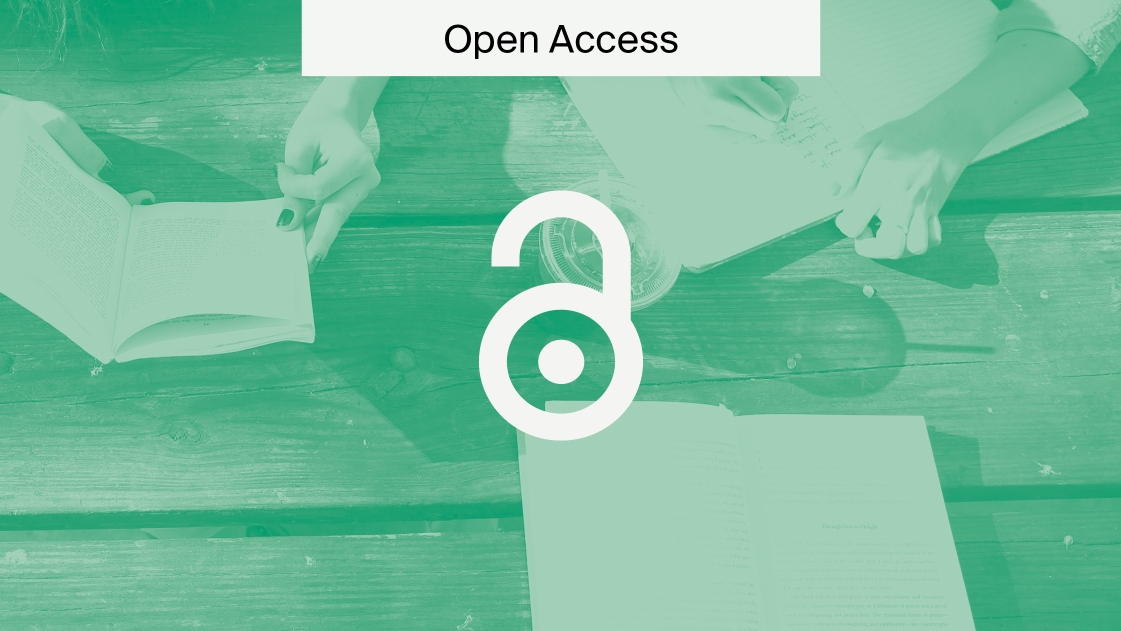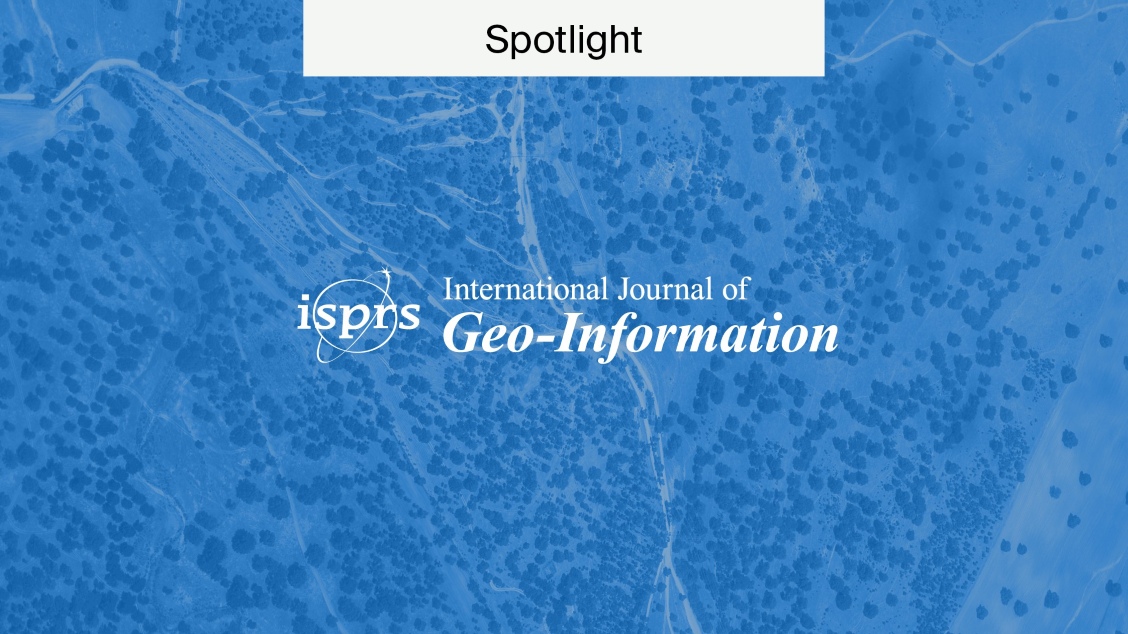
Editorial Independence and Publisher Support: Collaborating to Uphold Integrity
Recently, the Committee on Publication Ethics (COPE) published a position statement that highlights the new challenges academic editors and publishers face while re-affirming the need for editorial independence. This means that editors must be free to make editorial decisions without excessive interference from publishers or other external parties.
But, editorial independence does not mean complete separation between academic editors and publishers. The relationship between a publisher and academic editors is collaborative as they share a commitment to integrity, transparency and disseminating science.
Here, we explore the relationship between publishers and editors and how a well-defined open collaboration can build trust, maintain editorial independence and safeguard the editorial process.
Why editorial independence matters
Editorial decisions made by experts bring credibility and trust to journals and by extension to the publishers that stand behind the journals. Editorial independence protects the integrity of the peer review process and ensures that decisions are made based on the scholarly merit of the submissions and not on external pressures or commercial interests.
Authors are guaranteed a fair evaluation of their work, fostering trust, while readers can confidently depend on the relevance and reliability of the published content. COPE also advises academic editors to always keep the needs of the readers in mind:
“Notwithstanding the economic and political realities of your journal, you should select submissions on the basis of their quality and suitability for readers rather than for immediate financial, political or personal gain”- COPE
Ensuring that the content is suitable for readers influences the impact of the journal, which is beneficial for both the academic editor and publisher. It also ensures the sustained growth and viability of the journal as authors will always choose journals that address the correct audience.
How do publishers support academic editors?
Traditionally, publishers were responsible for providing the infrastructure needed to host the peer review process, and to disseminate and preserve the content published in their journals.
However, as the publishing landscape has evolved into the digital era with journals being published in online formats and researchers increasing their output, the publisher’s role has expanded.
Publishers still develop and maintain the infrastructure to host the peer review process, but a greater emphasis is placed on developing tools and providing administrative support to academic editors, reviewers and authors.
Tools for checking plagiarism, duplicate submissions, references and indicators of paper mills have been integrated into the peer review framework. Additionally, publisher teams have expanded to include research integrity specialists, AI developers, copyright lawyers or anti-piracy experts to address the current needs of scholarly publishing.
This places publishers in a unique position to collaborate with academic editors and share their knowledge related to research standards, best practices and new policies proposed by ethics committees and associations, funder mandates and governmental policies.
Collaborative models for publishers and editors
In the new position statement, COPE also acknowledges this change in the publishing landscape to a more collaborative relationship between publishers and academic editors. At its core, this relationship is based on a shared goal of upholding publication ethics and maintaining research integrity.
“More collaborative models to assure the integrity of the published record are emerging, that recognise the valuable contributions of both editors and publishers in maintaining the quality and integrity of scholarly publications”- COPE
MDPI continually invests in people and expert staff that can support and collaborate with the scholarly community. We believe that our role as a publisher is to support best practices through well-informed decision making. This entails supplying academic editors with the information they need to make decisions independently.
From submission to final decision: How MDPI collaborates to build trust and consistency
Establishing clear roles and responsibilities is key to maintaining trust and ensuring academic independence in the relationship between a publisher and academic editors. The editorial office staff with purely administrative and technical roles are in constant communication with the academic editors that set expectations and uphold ethical standards.
At MDPI, each submission is processed under the supervision of an independent academic editor entrusted with key decision-making responsibilities at various stages of the editorial process to ensure the suitability and quality of the published content.
The academic editor works in tandem with a member of the journal staff that provides end-to-end support ensuring transparency, consistency, and administrative accountability throughout the editorial process.
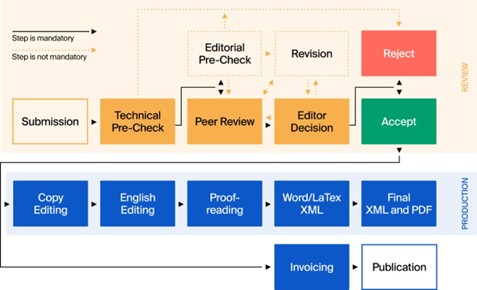
Submission and pre-check
As the volume of submissions increases each year, it is not feasible for the Editor-in-Chief to handle each and every manuscript submitted to the journal. Instead, the Editor-in-Chief and Editorial Board can set expectations regarding the basic standards a manuscript must fulfill before it comes to them for further evaluation.
At MDPI, immediately after submission, the journal’s editorial staff will perform a technical pre-check. This involves a series of automated and manual checks that can be split into two categories:
- Structural checks: The editorial staff will check the layout, language, figure quality, author name and affiliations, backmatter, supplementary files and references to ensure the authors prepared their manuscript following the journal requirements.
- Ethical checks: The editorial staff will check for duplicate submissions, plagiarism, ethical approvals and compliance with publishing standards and reporting guidelines, journal and author self-citation rates, among other checks that could be indicative of the fraudulent behavior or paper mills.
There are three possible outcomes that result from this screening:
- The journal staff will contact the authors to provide missing information or clarification if questions arise;
- The journal staff will reject the manuscript in cases where the technical pre-check does not meet the set expectations of the journal;
- The journal staff will invite the academic editor to pre-check the submission and report any discrepancies or concerns.
The academic editor will independently assess the suitability of the submission with respect to the scope of the journal, as well as the overall scientific soundness of the manuscript, including the relevance of the references and the correctness of the applied methodology. The academic editors can decide to reject the manuscript, request revisions before peer review, or continue with the peer review process and recommend suitable reviewers.
Peer review
During the peer review stage, the journal staff and academic editor again work together to ensure a robust and consistent peer review process.
The academic editor independently monitors the process and has the possibility of checking the status of the manuscript at any time, suggest further reviewers, check the quality of the invited reviewers and reports collected, and make editorial decisions. Additionally, the academic editor can discuss the manuscript review process with the dedicated MDPI staff member to provide them with further instructions.
In parallel, one dedicated MDPI staff member coordinates the review process and serves as the main point of contact for authors, academic editors, and reviewers. The dedicated MDPI staff member closely monitors potential conflicts of interest between reviewers and authors and invites the suggested reviewers or qualified reviewers that meet the set expectations of the journal.
Final decision and publication
Acceptance decisions on manuscripts can be made by the academic editor after peer review once a minimum of two review reports have been received. When making a decision, the academic editor will check:
- The suitability of the selected reviewers;
- The adequacy of reviewer comments and author response;
- The overall scientific quality of the paper.
Once the academic editor accepts a paper for publication, the dedicated MDPI staff member will proceed to assist the authors through the final production stages. This includes professional layout, English Editing, and proof reading.
Even during these technical stages of the publication process, the editorial office staff perform final ethical screenings to ensure that no major changes to the manuscript have occurred. Any major changes or discrepancies detected after an acceptance decision will be submitted to the academic editor for consideration and approval.
For further detailed information, please consult MDPI’s editorial process.
MDPI’s commitment to editorial independence
COPE’s position statement reinforces the importance of editorial independence and highlights the complexities of the publisher–academic editor relationship.
Moving forward, we are committed to upholding editorial freedom, supporting editors with robust policies and resources, and encouraging a culture of ethical collaboration that continues to build trust.
If you want to learn more about the ethical responsibilities of Editorial Board members, click here.




